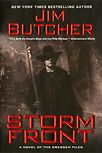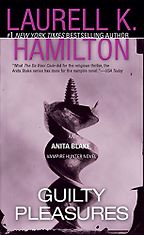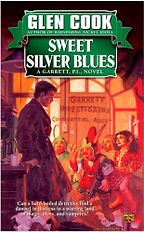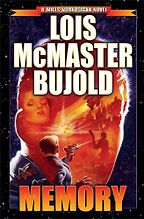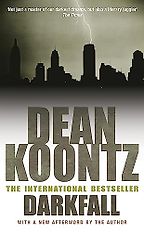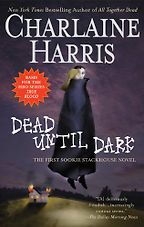What makes fantasy and mystery such an appealing combination?
The main thing that makes it such a great combination is the overlap in character types. That’s one of the things I did in The Dresden Files… I was following a very artificial process, and I was doing it to prove to my professor how wrong she was about writing – because I had a bachelor’s degree in English literature, in creative writing, whereas she had merely published forty novels. I decided one semester that I was going to prove something to her: I thought, “You know what, I’m just going to do absolutely everything she tells me to. I’m going to do all these little artificial processes, all these little character worksheets and all these little forms and outlines that she wants me to do, and she’ll see what a terrible product emerges from that kind of process”… which was when I wrote the first book of The Dresden Files!
As I was putting Harry together, he was initially a Frankenstein creation. I took all my favourite wizards and all my favourite private eyes, and I cut out all the bits that I wanted, and stitched them together into one person. I started with Sherlock and Gandalf, and then I moved on to Merlin, and to Dashiell Hammett‘s PIs, and it went from there. And as I was working on these characters, I realised that wizards and PIs overlap very well. They have the same purpose, which is to go into dark places, and find out things that someone doesn’t want them to know. Whether they’re going into a literal underworld, like Gandalf into Moria, or a more metaphorical underworld, like the mean streets of New York, their purpose is to be the guy who goes in there, finds out things that somebody doesn’t want them to know, and brings the information back to make a difference in the world. So these two figures, the wizard and the PI, are very much the same character, just dressed up for different periods of history.
PIs are also characters whose main trait is tenacity. A PI doesn’t give up, even when it would really be smarter to give up; that’s their underlying characteristic. And wizards are much the same, they have this drive, this will that will not be stopped, and that’s their defining characteristic. Both of them exercise power that is based upon knowledge more than anything else; both of them have to do a little bit of action work on the side in order to get stuff done. So I was realising, that’s why these genres work so well together, especially when it comes to characters who wield magic.
And then the other characters that are in these stories, the characters that the wizard or PI runs into, they also have a lot of things in common. They tend to have motivations that are very arcane, very inhuman to regular people, that people just don’t understand. Regular people don’t get why a mafia don does things the way he does; it all makes complete sense from his point of view, but if you’re not part of that world, you don’t understand the rules. So you need this intermediary who goes between the regular world and this darker, more mysterious world. Again, that’s what the PIs do, and it’s what wizards do. There’s so much that goes so well together – it’s such a chocolate and peanut butter genre, it just works.
There’s a reason why the Grimm fairy tales stood up for so long – they were the urban fantasy of their day. I’m not doing anything different to what they’re doing, when I’m writing Dresden and all the supernatural stuff happening in the city; I’ve just got a different dark forest to go into. They had a literal dark forest, and unless you were a townie you had to worry about that forest and the things in it that might eat you, as part of your everyday existence. For us the darker shadow of urban centres serves that same haunting role – where something bad might happen. I’ve seen people get spooked in cities for what seemed like no very good reason, but that is part of our condition as human beings: we have to deal with fear, we have to deal with threats. And we are by far the biggest threat to each other, more than anything else on this planet! So now when we write about a dark forest, we’re not afraid of the beasts in it anymore; we’re not afraid of the unknown, to any great degree; what we’re afraid of is each other. I think that’s why the genre has become much more urban – we do urban fantasy now, instead of just fantasy.
Let’s talk about your first choice: the first in the Anita Blake, Vampire Hunter series, Guilty Pleasures by Laurell K. Hamilton.
I picked this book up in about ’93 or ’94. There were three or four books in the series out at the time – there were more books out later. And I was just delighted because this was everything that I wanted in a story. Well, not absolutely everything, but almost everything that I wanted in a story was in the Anita Blake books!
Blake is a professional animator, which means her job is to go out and animate zombies. That’s just part of life. You have professionals who can do that for a number of reasons: maybe you need to yell at your mom, because she was terrible to you and your therapist thinks you should confront her – so you can animate her zombie and do that. Or maybe there’s some court thing that needs to be decided, so you hire an animator to get testimony. There’s a number of good reasons to go out and animate the dead – and Anita Blake gets hired to do this sort of thing. As a result, she has contact with the supernatural world in general, particularly with vampires. So when there’s a problem, she often gets asked to look into it, and she evolves from her initial job as an animator into a PI character.
This world is full of vampires and werewolves and all these different things that go bump in the night, and they replace the standard cast of your typical PI novel: the stoolies and thugs and gangsters. These books are full of action and intrigue and sex, and all the things that make us want to keep turning the pages to see what happens next. I just love that!
A year and a half after I got into these books I found Buffy the Vampire Slayer on TV, which was a very similar vibe. The original Buffy, the motion picture, had been out a couple of years before, and I thought that had fallen short of what it could have been. So when I found Guilty Pleasures, with a more fleshed-out story world, I was thinking, “Ooh I’m into this.” And then the Buffy TV show came out and I thought, “I’m really into this”. But there was still more that I wanted that I couldn’t find anywhere – and, eventually, that was one of the things that made me write my own books. We’ve got these great PI characters and these great vampire slayer characters, but I want Gandalf doing this stuff! A young American Gandalf. That was where I started when I was putting my own stuff together.
In your own work the magical world is not quite public. In Guilty Pleasures does everybody know about the magical world, or is it a secret?
It’s very parallel to the way organised crime works in our world. You’re aware of it, you know that it exists, but you don’t really know the details – you don’t really know people who are into it. Maybe you know somebody who knows somebody who hangs out with vampires, but you’ve probably never seen one yourself, unless it was maybe on a talk show or there was a movie about it. So they inhabit this shadowy grey space where you intellectually know that they’re real, but you don’t really run across them on a daily basis. That was always a great deal of fun for me: that world exists, and that world will pretty much leave you alone, unless you choose to involve yourself somehow, or unless business just runs over you in some way. You happen to live in the wrong place at the wrong time, or you happen to take an alternate route home from work and see something you shouldn’t have seen, that sort of thing. The idea of that world either drawing you in, or you investigating and finding out too much – it’s very Alice in Wonderland, because once you’ve been there, you’ll see your own world differently whenever you come back to it. And that was always something that I really appreciated about Laurell’s book.
In your own books, Harry Dresden is public about his job, but not everyone believes him. Could you tell us a bit about Harry’s work in The Dresden Files?
Harry Dresden is a professional wizard. He’s in the phonebook under ‘wizards’. He’s the only one there: ‘wizards’, one guy. Whether or not you liked the television show of Dresden in comparison to the books doesn’t really matter, this part they did just right – they had a tagline for it: ‘When you need help, call the police; when you need a miracle, call Harry Dresden’.
He does a lot of basic private eye stuff, that a basic private eye could probably do. But he can do a few things that regular guys can’t – things like ‘I lost my wedding ring in Lake Michigan’, he can help you with that. Also, he is a guy who stands between the predators of the supernatural world and regular folks – who either are aware of that world but don’t have the kind of power they need to protect themselves, or who are innocent of that world. And that world is coming to get them. Dresden is the guy who gets in the way, the supernatural sheriff of Chicago – if you’re one of the supernatural types, and you’re starting to get uppity and out of line and starting to hurt people, you’re going to have to deal with Dresden.
He likes to be able to make a living while he’s doing it, although that’s not always possible. For a lot of the series, he’s just trying to make ends meet. Mark Twain has a rule for writing fantasy: for every fantastic element you have in your books, you need two down-to-earth elements to keep it grounded. That’s what I wanted to do with Harry Dresden: yes, he’s a wizard with phenomenal cosmic power, but he also has to make his rent every month and he worries about that. He constantly has car trouble. We all get what that’s like, so even though he’s done all this magical stuff, what I wanted to show more was Harry doing just real world stuff, everyday stuff that people would understand.
As the series has gone on, it’s gotten wilder, and more involved in the supernatural world. One of the challenges has been to keep Dresden grounded.
It’s a lovely touch that there are officers in the police force he works with who don’t believe in what he does. It gives us the sense that this is our world, and that our world’s sceptics could just be wrong.
Yes, that was the goal. That was the beginning place: what if we do live in that world? What if all the people who’ve seen Bigfoot are just telling us the absolute truth? And all of us that are hanging out in cities and not out in the country, we’re the weird dumb ones. Because that could totally be true, we wouldn’t know. So I wanted to start Dresden in our world, and see what happens.
For your next choice we’re in a secondary world. Could you tell us about Sweet Silver Blues by Glen Cook?
Cook starts off with a fantasy world, a high fantasy world. I mean, it is a super duper fantasy-fantasy world, along the lines of Piers Anthony’s Xanth, where there are just thousands of magical species. This entire menagerie of supernatural entities all get thrown together into the same mix with people, and we see what happens.
One of the defining features of Glen Cook’s work is that there’s a magical war in progress. He was a Vietnam veteran himself, and so he understood the reality of the situation on the ground in combat, versus what the American public knew and what the news was saying and the politicians were saying… everybody had a slightly different viewpoint on it. The entire truth is far uglier and messier than anybody really wants to deal with. So his characters all have that same feeling as noir set in the late ’40s and early ’50s, where they’ve all been in the war, they all know how horrible it is. As a result, when you’re dealing with bad men, you’re dealing with bad men who know how to handle machine guns (or their world’s equivalent). And there’s a lot of currency in that shared experience – ‘Ok, we have this common experience. I can walk into this den of cutthroats and ruffians, and maybe walk out again, because I know who they are and where they come from; we’ve got this common experience and respect to base things on.’
This vast supernatural world is very much leveraged on the haves and the have-nots. There’s huge power interests at play behind the scenes, and there’s always somebody who’s getting walked on. Garrett, who is Glen Cook’s PI, is the guy who winds up on the side of the people getting walked on and the folks in the lower classes who need help. He’s got his partner, who is essentially a dead but sentient creature called a Loghyr; after they die, they’re still alive for a number of centuries, although they exist only telepathically. Their physical form is limited and has to be protected, so that’s the trade off: he works with a partner who’s this incredibly powerful psychic who can make sure that his home is always safe, but he also has to protect that incredibly powerful psychic’s decaying corpse from being eaten by mice and things like that.
Garrett is a PI who does not have any magic, he’s not a wizard. He’s familiar with magical equipment, which he learned how to use during the war, so he can do some stuff that a conventional human PI couldn’t do. It harks back to Robert Howard a little bit, where his hero Conan is always going up against opponents with fantastic powers, and all he has to fight them is courage and instinct. Garrett has almost the same thing, only I would say that instead of instinct, he has streetwise. He knows the streets, he has allies there, he knows how things function – and as a result, he can pull levers to have some powers countering each other. That’s one of my favourite things about the Garrett books. He’s somebody who has his own network of support, people that he works with, and usually he uses them to gain knowledge; but his real power is understanding how the balance of power works in his city, and being able to lean one against the other, and hopefully create some shelter for the little people underneath. That’s his purpose.
I’ve always loved Glen Cook’s work. He was on one of my very first panels as a professional author, where Neil Gaiman totally set me up – it’s a good story, I’ll tell you sometime. But I’ve always had tremendous respect for Glen’s writing, and his ability to write a really good mystery. He writes exactly the story he wants to write, and I love reading his work.
Er, I think I need that Neil Gaiman story…
Okay, so: I’m at my very first convention as a professional. I’ve sold my scripts, but the book isn’t out yet. I’m mostly there because I was a grad student in the School of Professional Writing at ODU, and this was an event that was happening in Austin with a bunch of crossover of personnel, people who studied at the School. So they invited me down, and here I am on this panel. I’m going up to my room and I get on the elevator, and there’s one other guy, a slight man in a black leather jacket. We say hello, are you at the convention, yes, oh that’s great… I think we talked about Buffy the Vampire Slayer for a moment. Just, what a nice guy. I say, “Maybe I’ll see you around”, he says, “Yeah, sure.” And then I show up later and it’s Neil Gaiman. He treated me with such respect and such courtesy, like a regular human being, when I wasn’t anybody, when he didn’t know me from the regular con-goer. He is a person of tremendous sincerity and integrity. I respect Neil greatly.
One of my first panels was called ‘Books that needed a better editor’. I’m on the panel with Patrick Nielsen Hayden, the most awarded editor in science fiction, Neil Gaiman, and Glen Cook. They’re all veterans, and here I am, the new kid: I don’t even have a book out yet. The panel has gone on for a while, and I’ve made a couple of lippy comments along the way, no big deal, just a few jokes; and I’ve almost gotten myself out of this panel without shoving my foot in my mouth. We’re getting close to the end. And at that point Neil Gaiman, who’s at the far end of the table, leans forward and looks down the table at me and says: “You know, Jim, you’re new to this business. We’re all veterans. We all know one another’s opinions. But you’re new here, and I noticed that you’ve been fairly quiet; and I’d really like to know what books you thought needed a better editor.” And I say, “Oh, I’m new at this game. Y’all don’t really need…” But he says, “No, no, honestly, I’m very interested. Let’s hear something new.” And I just look at the other guys, and I say… “The Lord of the Rings could have started on page 204 without losing anything. It was terribly edited. And here’s why.” I deliver my speech about how The Lord of the Rings starts slow and needed to go somewhere faster; how we spend 50 pages reading about Frodo moving from Bag End, and you know what, I’m not that interested when it’s me moving… And I remember Glen Cook putting his head in his hands, and Neil just leans back and looks aside at Patrick Nielsen Hayden; and Nielsen Hayden proceeds to tear me a new one for the next five minutes. Because I didn’t know how to be on panels, and I didn’t know how genial the arguments tend to be on panels about things like this…
There was just this little gleam in Neil’s eyes. He’s a mischievous git; I think that would be the appropriate phrase.
Incredible. Let’s turn to your third choice now, in another secondary world: Memory by Lois Bujold, number 10 in the Vorkosigan saga.
Memory is a book about Miles Vorkosigan, who is probably Lois’s most famous character, and deservedly so. First of all, let me start this section off by saying that I think that Lois Bujold is the most talented writer in science fiction and fantasy who’s alive right now. When it comes to sheer ability and story craft, she’s stunning. I do this for a living and I think all the time about plot, story, character, world building; and Lois doesn’t seem to understand that these are different things, because they’re all blended together so well and so seamlessly that you can’t tell one from another. It’s depressing how good she is. If you haven’t read Lois Bujold, go read her.
Anything Lois does is really good, but some things just happen to be amazing, and Memory is particularly amazing even for her. Her story world is a world called Barrayar, and Barrayar is essentially the Soviet Union that is awakening from horrible times, and becoming a more upright member of the galactic community. They’re trying to do better for their people, to rise up from essentially neo-feudalism into a more modern society, with a leadership that is a bit more enlightened – but also tough as nails, because they’ve come up through hard times. One of the people who was instrumental in this is a man named Simon Illyan, who was essentially the head of the KGB. Simon had a chip installed in his brain that gave him a perfect memory, an eidetic memory for absolutely everything; it was his job to read everything, to know everything and to take appropriate action to keep horrible things from happening. And suddenly, his chip starts malfunctioning. It’s a threat to the stability of everything.
So the main character, Miles Vorkosigan, who worked for Simon Illyan as his agent for years, is suddenly the only one who can help. He’s been disgraced, but he has to come back. He’s got neurological problems that are preventing him from operating in the field anymore, and it’s broken his heart; but something bad is happening to his boss (who he did nothing but exasperate for the previous ten years), and suddenly this horrible, terrifying authority figure is helpless. So Miles sets out to solve the mystery of what happened to Simon Illyan: did somebody do this to him? Are the planet’s enemies getting ready to make some sort of attack? Because this would be an excellent way to start… So he has to go through this dark world of very vicious internecine politics, to try and find out what’s happened to Simon.
I picked this one in particular, because it has a very strong mystery format, but it’s also an extremely good representation of the series as a whole. You get old world neo-feudalism meeting this new world politics of a representative republic: how do we adjust, how do we move on, how do we balance the interests of these various powers? You come away with the idea that politicians mostly suck, and that’s true, that’s the world that they live in – but they’re just doing their best to wrestle the best solutions they can out of people who are constantly fighting for power. Miles is this character who was born deformed; he’s under five foot tall with a bit of a hunchback, he was damaged in vitro by genetic weapons, and it’s a miracle that he’s alive at all. And he’s absolutely brilliant. He’s the son of a genius warlord who became a politician, a genuinely faithful regent to the upcoming Emperor, who he tried to raise as a good man… The sheer amount of kindness in these books is amazing. And that’s one of the things that I think we lack in our reading a lot of times. We read adventures, all this exciting stuff, but we often lack somebody who’s just kind, and who demonstrates what human compassion can be and what it can do. If you have lost faith in humanity, these are good books to read.
Not something you can always say of detective fiction!
Very true!
This sounds like it blends into thriller… Is this the kind of mystery the reader should be able to solve?
The problem with solving any mystery in one of Lois’s worlds is that you’re so busy enjoying the characters and the world and the story that it takes you out of that meta thinking; you’re too busy laughing at something silly that happened over here, or being shocked at something terrible that happened over there. She’s really good at doing a good show and distracting you from the mystery. At the same time, when you get to the end, you say, “Oh, yeah, of course” – which is what every good story does. A really good story, when you get to the end of it, feels like it couldn’t have gone any other way. And Lois is brilliant at doing that.
Could you tell us about your fourth choice now – Darkfall by Dean Koontz?
Back in the ’80s, there were two big horror writers who were operating: Stephen King and Dean Koontz. Stephen King was happy to give you a horrifying ending, he had no trouble with that at all. Dean Koontz believes in a happy ending: he wants to tie things up and restore you to that sense of normality and balance when it’s all over.
Koontz is also the author of one of my favourite books, Watchers, which is about genetic engineering and what can happen if it gets out of control. It’s about a genetically engineered golden retriever who is just as smart as a human being, but still a dog, and it is exactly as heartwarming as you would think. The same project that designed the golden retriever also designed a military engineered creature, a horrible monster that was designed to be a horrible monster, and these two grew up together. The monster hates the dog, and wants to kill it. It’s jealous because people are afraid of it – just because it’s a psychotic killing machine that tears people’s eyes out – and everyone loves the dog. There’s sibling rivalry going on between these two children of humanity. The dog escapes, the monster goes after it to kill it, the dog runs across a couple of normal people… How do they deal with this monster that’s coming after them, and the even more insidious monster of the government coming after all of it? That’s an amazing book.
I believe most of Dean Koontz’s story worlds are the same world. Darkfall is a book that touches upon the supernatural as a different dimension, that can sometimes touch on this dimension through the right people following the right practices. It’s about a police detective who is trying to solve a series of gang murders, and the gang murders are happening because the gangs crossed a voodoo bocor, a dark priest, who starts summoning things. At first he only summons little things, but if he summons three hundred of them they could eat you… And they’re getting bigger and bigger and bigger, and it’s getting worse and worse and worse. This police detective is realising that these crimes are not covered in any of the manuals. This guy, he got torn to pieces by rats in a club and nobody noticed – how did that happen? He finally figures out what’s going on, and he tracks down a white practitioner of voodoo, a houngan, to help him.
This is one of the books that inspired the Knights of the Cross in The Dresden Files. The houngan says, “Listen, I know there’s all these different religions. But at the end of the day, there are dark powers and light powers, and the dark powers don’t care about anyone or anything; they do whatever they want to as much as they can. And the light powers, we have to work together if we want something other than just horror all the time. So yes, you’re not a follower of voodoo, but you’re a sincere Catholic, and you have spent a lifetime trying to help people and do the right things – and that gives you power. Let me show you how.” And as a result – and this is one of the things that I loved about this book – it follows a police procedural format, but it’s really about the nature of good and evil, and how they interact. Where they’re strong and where they’re weak, and how the powers of good tend to come into alignment and work together; and how the little things that you do over time are additive, and they matter. The PI would say, “But I’m not a good man” – and the witch doctor replies, “If you thought you were a good man, you wouldn’t be a righteous man, you’d be a self-righteous man. You’re somebody who tries as hard as he can. And that’s what makes a good person – the effort, the will, the desire – those positive intentions to make a difference in the world. Now, let me show you how to actualize that…”
So he goes forth to battle evil and does so successfully. But the guiding principle of it was, with all these supernatural powers of good and evil, all the supernatural good can do for him is to put things in balance. After that, it’s going to be him and this other person, and he’s going to have to deal with them on his own. The powers can make this a fair fight, subtracting the powers of darkness, but he’s going to have to carry it through. And that is an excellent view of paladins in general. So when I’m writing paladins in the Dresden Files, they’ve got these cool swords that battle darkness, but all the swords can do is make it a fair fight. That’s something that I think applies to everyone, that everyone can identify with – if it’s a fair fight, I’ll definitely fight it.
This is much more sinister fantasy than your other choices…
It really is. It’s properly a horror novel, because there are bits of it that are horrifying – and I think the most horrifying thing any of us can feel is helpless.
We’re back in the more comfortable territory of vampires for your final choice, the first in The Southern Vampire Mysteries, featuring Sookie Stackhouse…Tell us about Dead Until Dark by Charlaine Harris.
Okay, this is in here mainly because I love Charlaine. She is one of the sweetest people I’ve ever met in the writing business, she’s wonderful. We were freshmen together. The same spring that my book came out, Dead Until Dark came out as well.
There’s a whole bunch of mystery sub-genres, and the cosy mystery is a big one. It’s small town issues, and how you deal with those problems. What are the unique facets of those sorts of mysteries? This is what Charlaine has done, except she’s also added in vampires who have recently come out of the closet, and all sorts of supernatural beings are appearing. The vampires were able to make themselves public because of the development of true blood, this synthetic blood supplement that vampires can drink, so they don’t have to hurt humans anymore. They can come out and be normal like everyone else. But of course they like the way they live their life, and they like drinking from people and so on. So it’s a very mixed bag – some vampires are sincere about the new start; some of them are not really sincere but they’re using it as a way to gain clout and power and money, so they have to live up to it; and some of them say nope, I’m a bad guy and I’m going to stay a bad guy – they’re perfectly happy that way.
Sookie is a brilliant PI. She’s a telepath: she can read people’s thoughts, and she can sometimes pick up on things that have happened in places when she’s around them. She’s an empath, she can read strong emotions very easily. So she herself is a weird outcast, and as a result she’s neither fully human nor fully supernatural – she exists, again, as that go-between for the normal world and supernatural world. That spot is really where all the supernatural private eyes hang out. And Sookie is great, because she has all this ability to learn information, which makes her very dangerous; but physically speaking, she is as helpless as a regular human being. So she has to be very careful about what she says and what she reveals, even who she hangs around with or looks at for too long. It would be very hard to live your life as Sookie Stackhouse! She’s also one of those characters who builds up a network of favours: people who like her, or want to work with her, or have a crush on her… Her entire existence is about balancing out these interests and powers, and trying to figure out how she’s going to survive until tomorrow.
I enjoyed the hell out of these books. They had a very different take on things: how do we integrate all these weird supernatural elements into regular society? Some of them work pretty well, some of them are fantastic, and some of them do not work out at all; and at the same time, humans can be just awful. How do you get everybody to get along, when nobody wants to get along? I often felt that Sookie was the only adult in the room, and she has to figure out how to get all the kids to play nice together.
Five Books aims to keep its book recommendations and interviews up to date. If you are the interviewee and would like to update your choice of books (or even just what you say about them) please email us at [email protected]
Five Books interviews are expensive to produce. If you've enjoyed this interview, please support us by donating a small amount.

